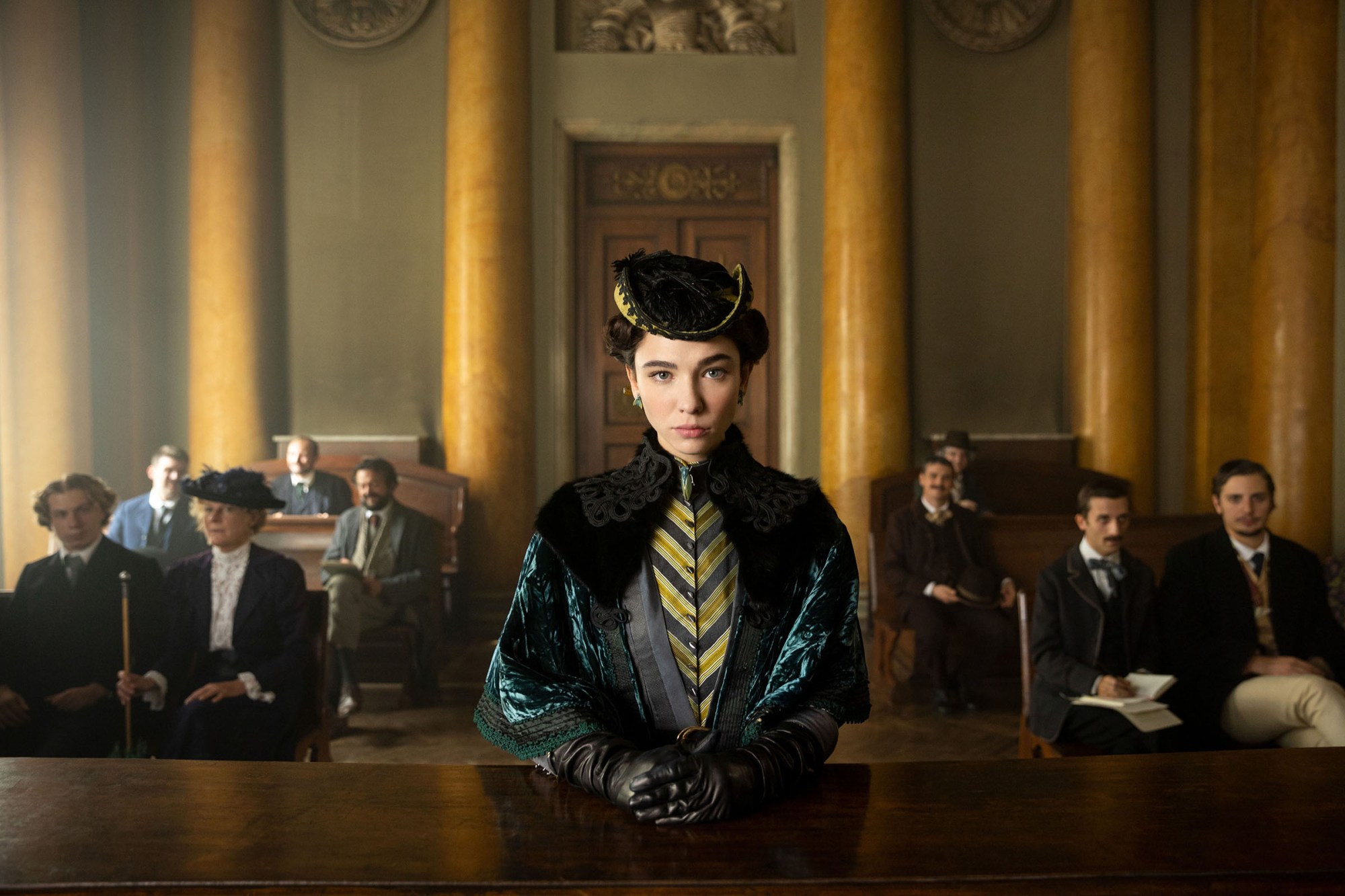
- Television
“The Law According to Lidia Poët” – First Female Lawyer in Italy
The Law According to Lidia Poët is an Italian television series streaming on Netflix, inspired by the true story of the first female lawyer in Italy. Set in the 1880s in the historic city of Turin in the Piedmont region – it had been capital of the Kingdom of Italy from 1861 to 1864 – each of the six episodes deals with a fictional murder mystery, brilliantly solved by this fearless young woman, who offers legal representation to the person unjustly accused of the crime and conducts daring investigations to prove their innocence and discover the real culprit.
Despite having been admitted to the bar association after earning a law degree, Lidia (Matilda De Angelis) is unfairly disbarred and banned from the courtroom, simply because the legal profession is not deemed suitable for a woman at this time in history. She is forced to put aside her pride and ask for help from her older brother, Enrico (Pierluigi Pasino), since he is also a lawyer; she starts working as his assistant, and, short of funds, moves back into their family home, where Enrico lives his wife Teresa (Sara Lazzaro), their teenage daughter Marianne (Sinead Thornhill) and his wife’s brother Jacopo (Eduardo Scarpetta), a journalist.
In real life, Lidia Poët, who was born in 1855, received her degree in Jurisprudence from the University of Turin’s law school in 1881 with a thesis on the condition of women in society and the possibility of the right to vote for women; in 1883 she brilliantly passed the bar exam after two years of legal internship. However, Italy’s Attorney General entered a complaint with Turin’s Court of Appeal, and three months later her license to practice law was revoked. She filed an appeal with the Supreme Court in Rome, which was rejected in 1884 on the grounds, among other issues, that because of the deficiency of intellectual and physical strength in the female sex, women were excluded from holding public office.
Most Italian newspapers and the public supported Lidia’s cause, and she dedicated her life to fighting for women’s rights and gender equality, helping to set the agenda for the first Italian Women’s Congress held in Rome in 1908. It was only in 1920 that Poët was readmitted to the bar at the age of 65 and allowed to practice her profession. She died in 1949, after witnessing Italian women earn the right to vote for the first time after the end of World War II, which they did on June 2, 1946, in an historic election held concurrently with the referendum to decide whether the country should remain a kingdom or become a republic.
Matilda De Angelis (born in Bologna on September 11,1995) received critical praise for her performance in the movie Veloce come il vento (2016) directed by Matteo Rovere and starring Stefano Accorsi, and also played the murdered woman in the TV series The Undoing (2020) with Nicole Kidman and Hugh Grant. She said at the press presentation of La legge di Lidia Poët in Turin: “It was an enormous privilege for me to tell Lidia’s story. She made feminist history, and I am glad that we brought to light the life of a woman that is not too well-known. This series is an opportunity to get to know her in more historical depth; although it’s a work of fiction and fantasy that spans many genres, including romance, it borrows elements from certain details of Poët’s life, born in Turin in 1855 in a family of lawyers. It’s very important to write this kind of story about gender inequality; we let our imagination and empathy fly and the result is a very well-written script. As an actress and as a woman, I am flattered when I am given the opportunity to play a character like Lidia, intense and strong, with a big personality. I tried to give her as many facets as possible, to make her determined and light at the same time. She is fallible and fragile, and this is her most interesting trait.”
Producer-director Matteo Rovere introduced the series about Lidia Poët with this description: “It’s the story of an anti-conventional woman in the late 1800s, who shines for her talent, free spirit and personality. Her guiding principle is to be non-conformist, to think outside the box, to rebel against the dominant line of thought and the pre-existing system.”
This groundbreaking series not only provides a celebration of the long-overdue emancipation of women, but cleverly explores historical aspects of turn-of-the-century Italian society such as opium addiction, prostitution, spiritualism, anarchism, class differences, arranged marriages, and forbidden lesbian relationships. It presents a heroine who is liberated and sexual, ahead of her time as it was 140 years ago, but frustrated by her second-class citizenship in society, fighting to affirm her right to work in the profession of her choice.
READ La legge di Lidia Poët. La prima avvocata d’Italia by Elisa Leonelli